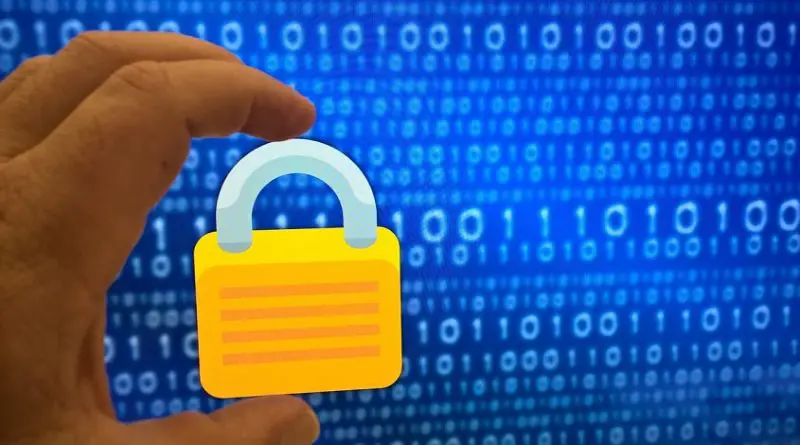The Security and Privacy Implications of Cryptocurrency
Cryptocurrency presents both security and privacy challenges that must be navigated to ensure safe transactions. This includes considerations such as key management, secure exchanges, smart contract security, and government regulations. Stay informed to protect your assets.
Cryptocurrency security and privacy concerns have become increasingly relevant with the growth of digital currencies. The security of cryptocurrency is threatened by key management and storage issues, cryptographic algorithm weaknesses, and potential vulnerabilities in the underlying blockchain technology. On the privacy front, the transparency of public blockchains creates linkability between transactions, compromising the anonymity of users. The increasing use of centralized exchanges and smart contracts also pose security risks. To ensure the security and privacy of cryptocurrency, it is imperative for technologists and developers to stay informed about the latest developments in the field and to employ best practices in key management, encryption, and smart contract design.
Understanding the basics of cryptocurrency security
Key management and storage are critical components of cryptocurrency security. Cryptocurrency wallets use private keys to access funds, and if the private key is lost or stolen, the funds are permanently inaccessible. This is why proper key management and storage practices are essential. One common method for storing private keys is through the use of seed phrases, which are a series of words used to recover the private key. It’s important to keep seed phrases in a secure and accessible location, such as a secure hardware wallet.
Cryptographic algorithms play a crucial role in securing cryptocurrency transactions and ensuring the integrity of the underlying blockchain technology. The most commonly used cryptographic algorithms in cryptocurrency include SHA-256, Scrypt, and Ethash. These algorithms are responsible for verifying transactions, generating new blocks, and protecting the network from malicious actors.
Seed phrases and private keys are crucial for accessing cryptocurrency funds. A seed phrase is a series of words that can be used to recover a private key if it is lost or stolen. The private key is used to access the funds in a cryptocurrency wallet, so it is important to keep it secure and accessible.
The threats and vulnerabilities in cryptocurrency security stem from various sources, including hacking, phishing, and malware attacks. Hackers can use these methods to steal private keys and gain access to funds in cryptocurrency wallets. It’s important for cryptocurrency users to stay informed about the latest security threats and to implement best practices for protecting their assets, such as using secure hardware wallets, enabling two-factor authentication, and avoiding suspicious emails or links.
The privacy implications of cryptocurrency
The privacy implications of cryptocurrency are a significant concern for users and stakeholders in the industry. Cryptocurrency transactions are recorded on a public blockchain, making it possible to trace the flow of funds between addresses. This transparency makes it possible to link transactions to individuals or entities, compromising the privacy of users.
Anonymity and pseudo-anonymity are features that can enhance the privacy of cryptocurrency transactions. Anonymity is achieved through the use of unlinkable addresses, making it impossible to trace transactions back to a specific individual. Pseudo-anonymity, on the other hand, uses a single address for multiple transactions, making it more difficult to link transactions to a specific individual.
Mixing services and privacy coins are also available to enhance the privacy of cryptocurrency transactions. Mixing services break the linkability between transactions by swapping coins between multiple users, making it more difficult to trace the flow of funds. Privacy coins, such as Monero and Zcash, employ cryptographic techniques to enhance the privacy of transactions, making it more difficult to trace the flow of funds.
Cryptocurrency exchanges and their security
- Centralized vs decentralized exchanges:Centralized exchanges (CEX) and decentralized exchanges (DEX) differ in their structure and security measures. CEXs are owned and operated by a central entity, which holds users’ assets in custody. DEXs, on the other hand, use smart contracts to facilitate transactions without the need for a central entity. As a result, DEXs offer greater security and privacy compared to CEXs, as users retain control of their assets at all times.
- Security measures in cryptocurrency exchanges: Cryptocurrency exchanges employ various security measures to protect users’ assets, including cold storage, two-factor authentication, and encryption. Cold storage refers to the practice of storing assets offline to minimize the risk of theft by hackers. Two-factor authentication is an additional layer of security that requires a user to provide two forms of identification before accessing their assets. Encryption is used to protect sensitive information, such as private keys, from unauthorized access.
- Common security vulnerabilities and attacks on exchanges: Despite the security measures in place, cryptocurrency exchanges are vulnerable to a range of attacks, including hacking, phishing, and insider theft. Hackers can exploit vulnerabilities in the exchange’s software to steal funds, while phishing attacks trick users into revealing their private keys. Insider theft occurs when an employee of the exchange misuses their access to steal funds.
- Importance of choosing secure exchanges for trading and storing assets:Choosing a secure exchange for trading and storing assets is crucial for protecting one’s cryptocurrency holdings. It’s important to research the security measures in place and to look for signs of a well-established and reputable exchange. Additionally, users should avoid keeping large amounts of assets on exchanges and should instead use secure hardware wallets for long-term storage. By taking these precautions, users can minimize the risk of losing their assets to security vulnerabilities and attacks on cryptocurrency exchanges.
The security of smart contracts in cryptocurrency
Smart contracts are self-executing programs that run on blockchain networks and are used to enforce the terms of a contract. In cryptocurrency, they are used to automate transactions and enforce the rules of the underlying blockchain protocol. However, security is a major concern with smart contracts, as bugs and vulnerabilities in the code can lead to loss of funds. To mitigate these risks, smart contract developers should follow established security best practices and thoroughly test and review the code before deployment. Additionally, users should only interact with smart contracts from reputable sources and should be cautious when interacting with unfamiliar contracts. By taking these precautions, users can reduce the risk of losing funds due to security vulnerabilities in smart contracts.
Government regulations and their impact on cryptocurrency security and privacy
Government regulations play a significant role in shaping the security and privacy of cryptocurrency. In some countries, regulations require exchanges to implement strict know-your-customer (KYC) and anti-money laundering (AML) measures, which can compromise the privacy of users. In other countries, regulations may be more permissive, allowing for greater privacy and security in cryptocurrency transactions. Governments also have the power to impose restrictions on the use of cryptocurrency, such as banning its use or requiring licenses for its use, which can impact its adoption and security. By carefully considering government regulations, users and stakeholders in the cryptocurrency industry can make informed decisions that impact the security and privacy of cryptocurrency transactions.




